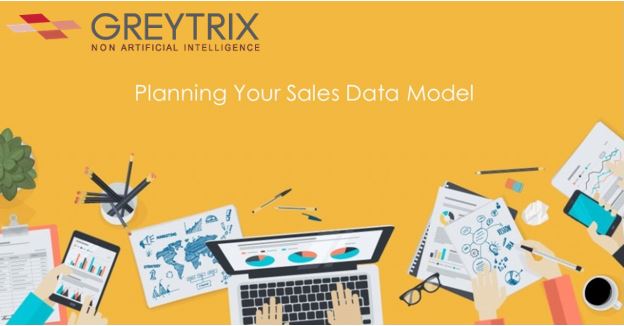Everyone working as a consultant to the sales and marketing side of the business, the most frequent point of discussion always remains “clean CRM data”. As being part of these discussions many times we think of sharing our inputs to others to share some thoughts and concepts that have worked best for us.
Is the “Sales” data always Truthful?
The very 1st concept that one has to accept is that it is nearly impossible to have a completely perfect Sales data. It never exists (or at least for long). Why? As the Business is never static. People change their jobs, Companies move offices, corporate are here today and gone tomorrow and they don’t call you to inform. This is simply the nature of business. The sooner someone accepts this principle; the sooner their marketing team will stop spiking your coffee — or maybe you are not aware of the situation. Instead of struggling for excellence, you should instead plan for limitation, because that’s what is going to be a stop to your business.
We should always understand that every unique piece of data that’s stored in our database should be managed and stored on its own. This concept is based on the foundation of the RDBMS concept. By treating each piece of related data as an individual, you make room for making a meaningfully use of the data later. We can personify this concept with something as simple as companies and people. A company will be a stand-alone entity that always has people who act as staffs/workers. An individual is not a company and therefore should not be exclusively tied to one, but rather treated as its own and linked to a company through relationship. Moreover, it is very possible a company could be a subsidiary of another company and you would ideally link those companies through a relationship. By exercising this relationship model, user has the ability to execute his sales & marketing strategies against both people and companies. This relationship model can of course be expanded infinitely. Thus there will always be a need to understand the concept of relational data to have a chance at building something useful.

Is Excel a good data administrator
We know this for a very long time, that there are a list of companies and a list of people who are part of your business. So generally we would like to maintain the data somewhere, other than the old fashioned way of an excel spreadsheet. Excel spreadsheets to the data are not a good option. Spreadsheets have no memory, they are not relational and are definitely not something that can be easily shared and managed between the various teams of an organization. So we would suggest of not dropping into the spreadsheet con, it will lead to annoying decision making. Instead, seek out a CRM program to store and use your data for better sharing and analytics.
System to manage “Sales” data
It’s a myth that only the big companies had relational CRM databases. With the development of cloud-delivered CRM, the smallest companies/business can have access to the same CRM products used by the big guys. Salesforce.com and Sugar CRM are few examples of enterprise level CRM products available in the cloud. With the modern technology and payment options, anyone can today buy/rent enterprise level CRM to store and manipulate their data. In fact, if they have some connectivity/exposure (through secured channel) to the data, they can even import the data from spreadsheets or native storage directly into those CRM systems pretty easily.
Tips for Cleaning up data
Finally, as we now understand that building a useful database takes time and will change and grow over time. So you will need to follow the 3 simple steps to keep your CRM data clean:
- Purge Useless Information
- De-duplicate/Remove duplicate data
- Keep Data Entries in the System, Simple
As said previously, imperfection is the nature of data but you have to start somewhere. Thus building a useful database is like a journey. So get going and you’ll be at the first rest stop before you know it.
About Us
Greytrix as a Salesforce Product development partner offers a wide variety of integration products and services to the end users as well as to the Partners across the globe. We offer Consultation, Configuration, Training and support services in out-of-the-box functionality as well as customizations to incorporate custom business rules and functionalities that requires apex code incorporation into the Salesforce platform.
Greytrix has some unique solutions for Cloud CRM such as Salesforce integration with Sage Enterprise Management (Sage X3), Sage Intacct, Sage 100 and Sage 300 (Sage Accpac). We also offer best-in-class Cloud CRM Salesforce customization and development services along with services such as Salesforce Data Migration, Integrated App development, Custom App development and Technical Support to business partners and end users.
Greytrix GUMU™ integration for Sage ERP – Salesforce is a 5-star app listed on Salesforce AppExchange.
For more information, please contact us at salesforce@greytrix.com. We will be glad to assist you.

